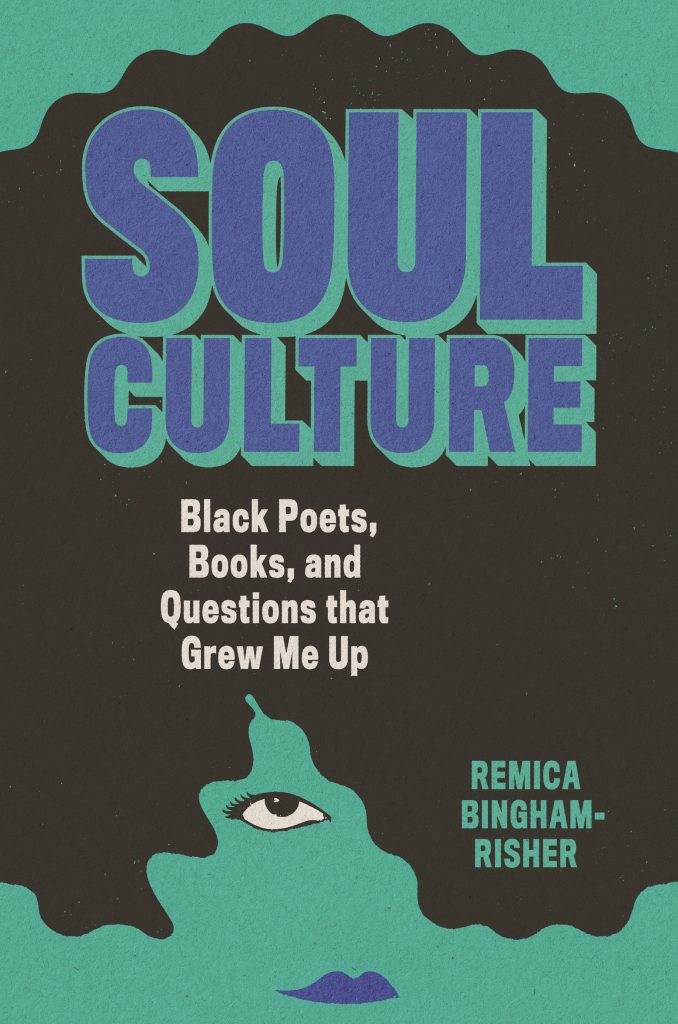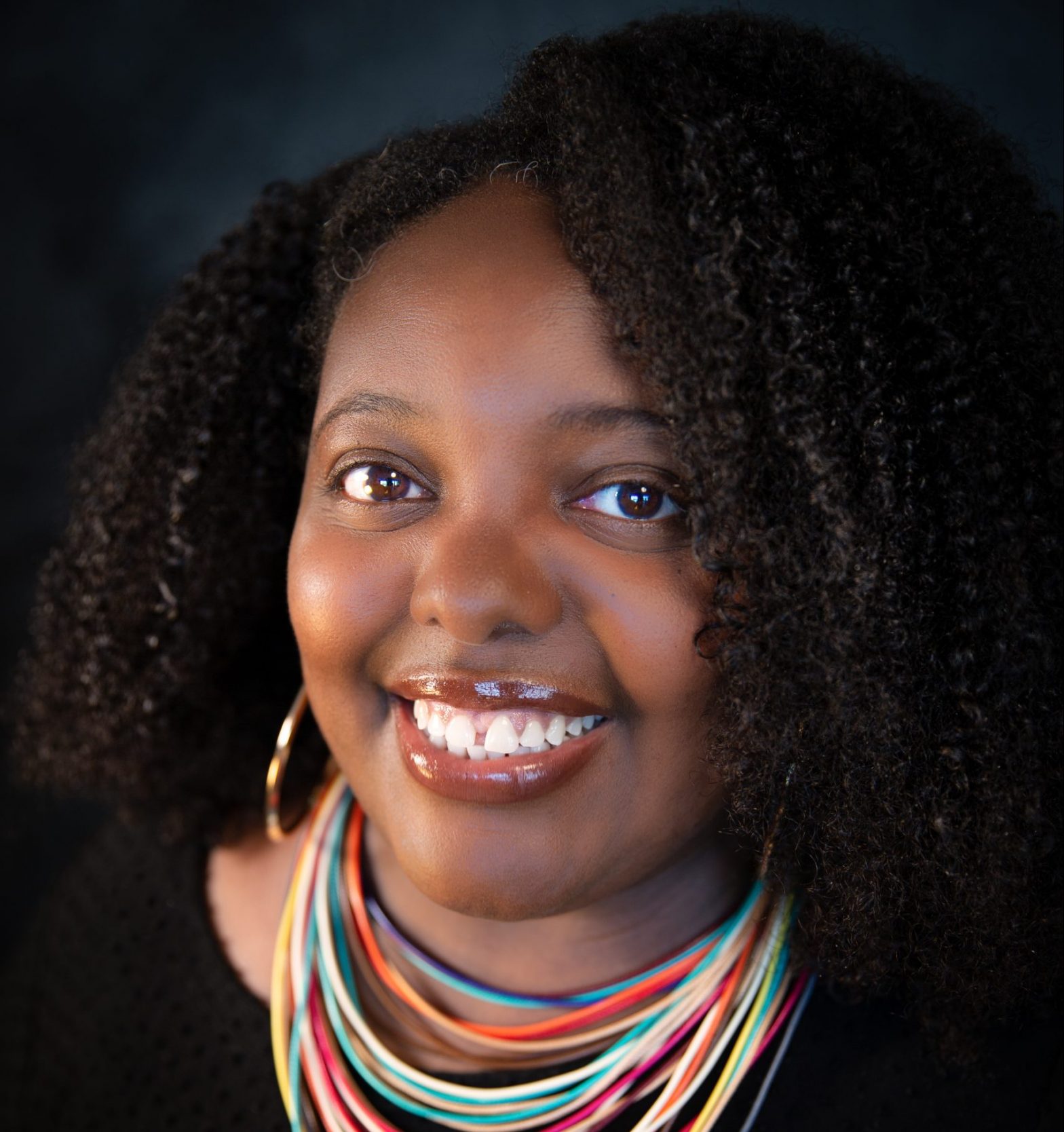In Soul Culture: Black Poets, Books, and Questions that Grew Me Up by Remica Bingham-Risher, the poet and essayist, reflects on her life and the influences of the Black poetry community, as framed by interviews with 10 influential mentors. An Affrilachian Poet, Cave Canem fellow, and winner of the Naomi Long Madgett Poetry Award as well as the Diode Editions Book Award, Bingham-Risher writes that “‘Soul culture’ is a phrase meant to evoke the nuanced living of Black American poets and, particularly, contemporary Black American poets. It is Black devotion; Black reclamation and reframing of the past; Black joy, liberation, and a radical love ethic despite Black trauma, fear, and rootlessness. … This project was meant to be part oral history, part coming-of-age on the shoulders of giants.”
On all counts she succeeds, and Soul Culture, her first book of prose, is a reckoning of self, craft, and culture. Tracing a childhood split between Arizona and Georgia, a move back east to Norfolk, her time at Bennington College, and beyond, Bingham-Risher skillfully weaves personal experiences with mentor interviews. Throughout the book she highlights wide-ranging themes, from faith and family to trauma and the art of revision—in writing and in life. “I know the power that other Black poets have given me: Enlightenment. Scrutiny. Camaraderie. Words to subvert fear,” she writes.
The highlighted mentors range from Lucille Clifton, Sonia Sanchez, and E. Ethelbert Miller to Tim Seibles, Honorée Fanonne Jeffers, and others, all esteemed writers, beloved by many, who shared wisdom, warmth, and support with Bingham-Risher. “The 10 poets I included are poets that I have long admired and, honestly, Black poets are so giving that each poet that I asked said ‘yes’ to an extensive interview about their life‘s work,” she says. “When the time came for me to compile the book, I made sure every single one of them was there.”

Bingham-Risher’s deep love for these writers’ work shines. “Clifton turned me topsy-turvy,” she writes. This project and her work as a writer seeks to overcome what Ethelbert Miller referred to as “awe syndrome,” the paralysis that results from adoration so intense that it scares a writer off from sharing, or even creating, their own work.
“Doing the interviews taught me that these poets were living, breathing, tired, worrisome, exhausted, loving, busy human beings, just like I was, and that they made time for their work on a consistent basis,” says Bingham-Risher. “These poets were living their lives in the world of literature because they made time for the poems. So I learned very quickly that they weren’t miraculous so much as persistent, and I made my way toward that as well.”
Never heavy-handed, the thematic connections highlighted in each chapter are imbued with grace and gratitude as the author reflects on lessons learned, bringing her whole, authentic self to the effort—as a Black poet, a mother, an educator and mentor, a daughter, and a wife.
Attention to the craft of writing is also a recurring theme in Soul Culture, as Bingham-Risher shares wisdom from her mentors alongside her own, learned from years of writing and teaching. Selections of her poetry are featured throughout the book. Comparing her poetry- and prose-writing processes, she says, “Writing prose is very different from writing poems for me. When I write poems the initial idea comes like a lightning strike. It’s fast and furious. When I’m writing prose I know I’m entering into an idea that is expansive in a way that has to have a much larger receptacle than a poem. Because of that, it usually takes me much longer to wade into it.”
The deeply personal book is also an unflinching look at contemporary American culture, devoting attention to mass shootings and police killings of Bingham-Risher’s close friend, Rumain Brisbon, as well as Trayvon Martin and others. Further, this contemplation orients the author’s work within the history of influential Black writers and community organizing that she traces—from the early days of the Black Arts Movement in the 1960s to contemporary convening work done by Cave Canem and others—including those writers who, “speaking in the voices of those in their communities … validated those silenced for centuries.” Going forward, she ponders: “What is revolutionary work in the age of a somewhat freer Blackness?”
“Attentiveness, deep consideration, thoughtfulness: Each a different kind of love,” writes Bingham-Risher. Written as its own expression of love, her memoir offers each of these, as she invites the reader to join her in “navigating the strange space that is often our living … in the context of an ever-changing, ever-strange, and difficult world.” It offers a roadmap for younger Black poets, an informed and enthusiastic guide for curious readers, and a resounding call to creative self-reflection and the work of building community. And for readers eager for more of Bingham-Risher’s poetry, her next book, Room Swept Home, will be a return to the form and should be on shelves in Spring 2024.
